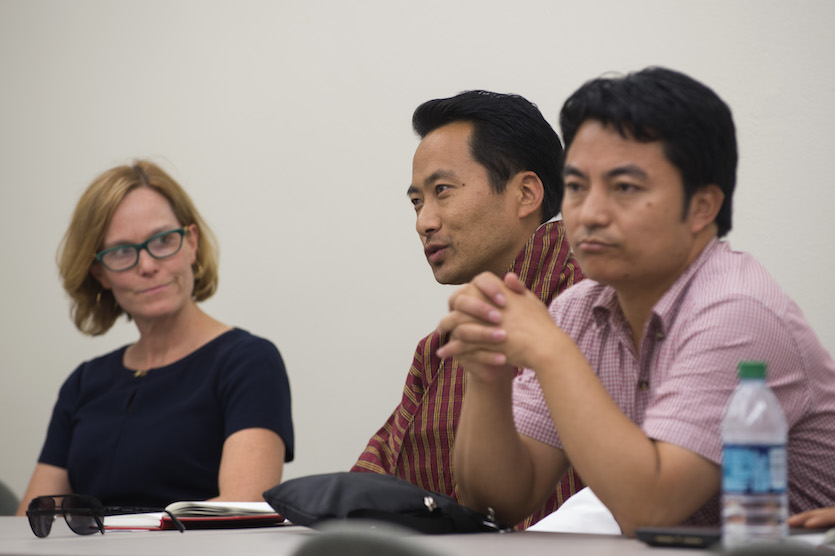Bhutan government officials visit Idaho State University and meet with political science faculty and students
August 30, 2016

POCATELLO – Five governmental officials from Bhutan visited Idaho State University this week as part of the U.S. Department of State’s International Visitor Leadership Program.
The group met with faculty and students from the Department of Political Science and discussed political science, politics and public administration in the United States.
During the discussion, the Bhutan officials asked what political science was, what new challenges the United States faces that it should tackle in the next five to 10 years and the engagement of academia and policy engagement within the government.
The officials have been in the United States for three weeks learning about government accountability in the United States to help with accountability in government in Bhutan. The Bhutan officials first visited Washington, D.C. and met with different organizations regarding government.
Next, they visited Jackson, Mississippi and learned about how city governments work. They also traveled to Boise to learn more about the state government, visited Craters of the Moon National Monument, Jackson Hole, Wyoming and the Fort Hall Indian Reservation to learn more about its structure. To round out their trip, they will travel to Portland to learn more about state level government before making the two-day trip home.
The list of officials from Bhutan include; Mr. Chencho, head of Government Performance Management Division, Office of the Prime Minister; Dorji Dhap, deputy chief accounts officer; Tashi Pem, collector, Ministry of Finance; Namgay Wangchuk, acting chief human resources officer; Dorji Wangmo, chief planning officer, Policy and Planning Division, Ministry of Works and Human Settlement.
The country of Bhutan became a democracy in 2008 and the visit by its government officials to the United States had many purposes including examining the United States’ legal and regulatory frameworks for public administration and human resource management, exploring public decision-making and budgeting models and exploring the roles of media, watchdog organizations and citizen groups in supporting and monitoring good governance.

